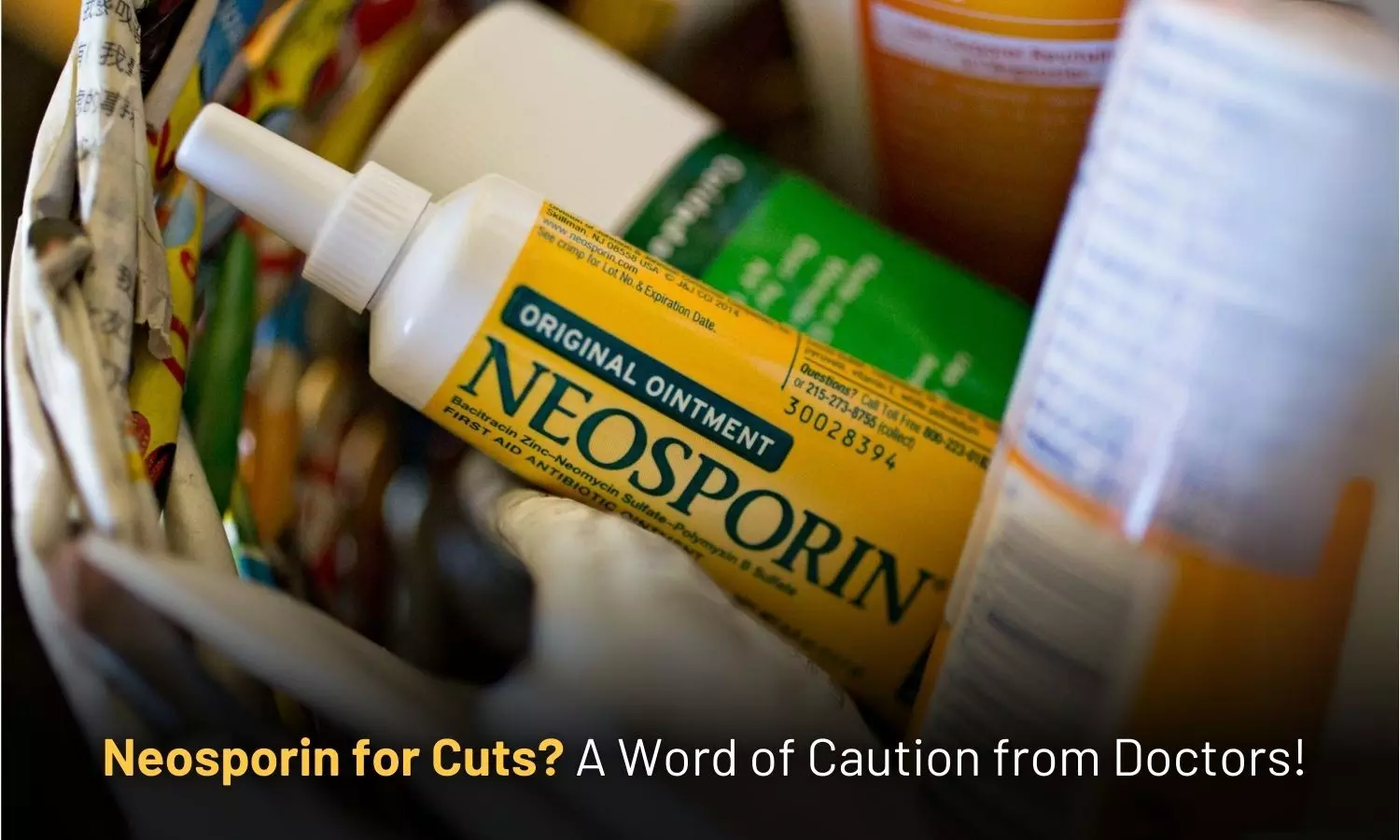Neosporin for Cuts? A Word of Caution from Doctors!
A study from 2021 revealed that wounds treated with Neosporin tended to heal more slowly, potentially because beneficial bacteria play a role in the healing process.
Neosporin for Cuts? A Word of Caution from Doctors!

Ah, the joys of summer on the beach! But what if you accidentally cut your foot on a sharp rock or a piece of glass? Like many, you might instinctively reach for an antibiotic ointment like Neosporin to protect the wound. However, dermatologists are now cautioning against this common practice, revealing that such ointments may contain allergens that can cause unexpected complications. Instead, they suggest exploring other remedies for effective wound care.
The standard triple-antibiotic ointment, a go-to choice for many, contains neomycin, bacitracin, and polymyxin B as active ingredients. Among these, neomycin emerges as a prevalent allergen, often leading to an itchy rash known as contact dermatitis. Even if you've used antibiotic ointments without any adverse effects in the past, be wary, as allergies can develop later in life, as highlighted by experts like Tremaine.
While some ointments omit neomycin, the remaining ingredients, bacitracin and polymyxin B, can also trigger reactions. Both have earned the unfortunate distinction of being named Allergen of the Year by the American Contact Dermatitis Society, raising concerns about their potential side effects.
Though triple-antibiotic ointments have demonstrated infection-fighting properties in studies, one particular research paper questioned bacitracin's efficacy. Another comprehensive report evaluating various topical antibiotics found their impact to be relatively modest. In the view of experts like Tremaine, the risk of skin reactions outweighs any potential benefits.
Interestingly, the idea of eliminating bacteria entirely might not be in your best interest when treating wounds. A study from 2021 revealed that wounds treated with Neosporin tended to heal more slowly, potentially because beneficial bacteria play a role in the healing process.
A spokesperson for Kenvue, the parent company of the Neosporin brand, cautions users to avoid the product if they have a history of allergies to any of its ingredients. As Kenvue went public earlier this year, it's essential for consumers to make informed choices about their wound care options.
If you're seeking safer alternatives for wound healing, consider petroleum jelly brands like Vaseline, which help maintain moisture and promote better healing. Another suggestion from Tremaine is a soak in diluted white vinegar, which can reduce the risk of infection.
While topical antibiotics may be appropriate for certain cases, such as infected wounds, some experts, including Flowers, prefer prescription ointments that are less likely to trigger allergic reactions. If you notice signs of infection, such as redness, swelling, or fluid drainage, it's crucial to seek medical attention promptly.
So, the next time you find yourself tending to a beach-related injury, pause before reaching for that Neosporin. Exploring alternative, safer remedies can ensure a smoother healing process and reduce the risk of unexpected allergic reactions. Remember, a little caution and informed choices can go a long way in ensuring your health and well-being during those sunny beach days!
Source: https://www.bloomberg.com/news/newsletters/2023-07-27/neosporin-for-cuts-some-doctors-say-no#xj4y7vzkg

